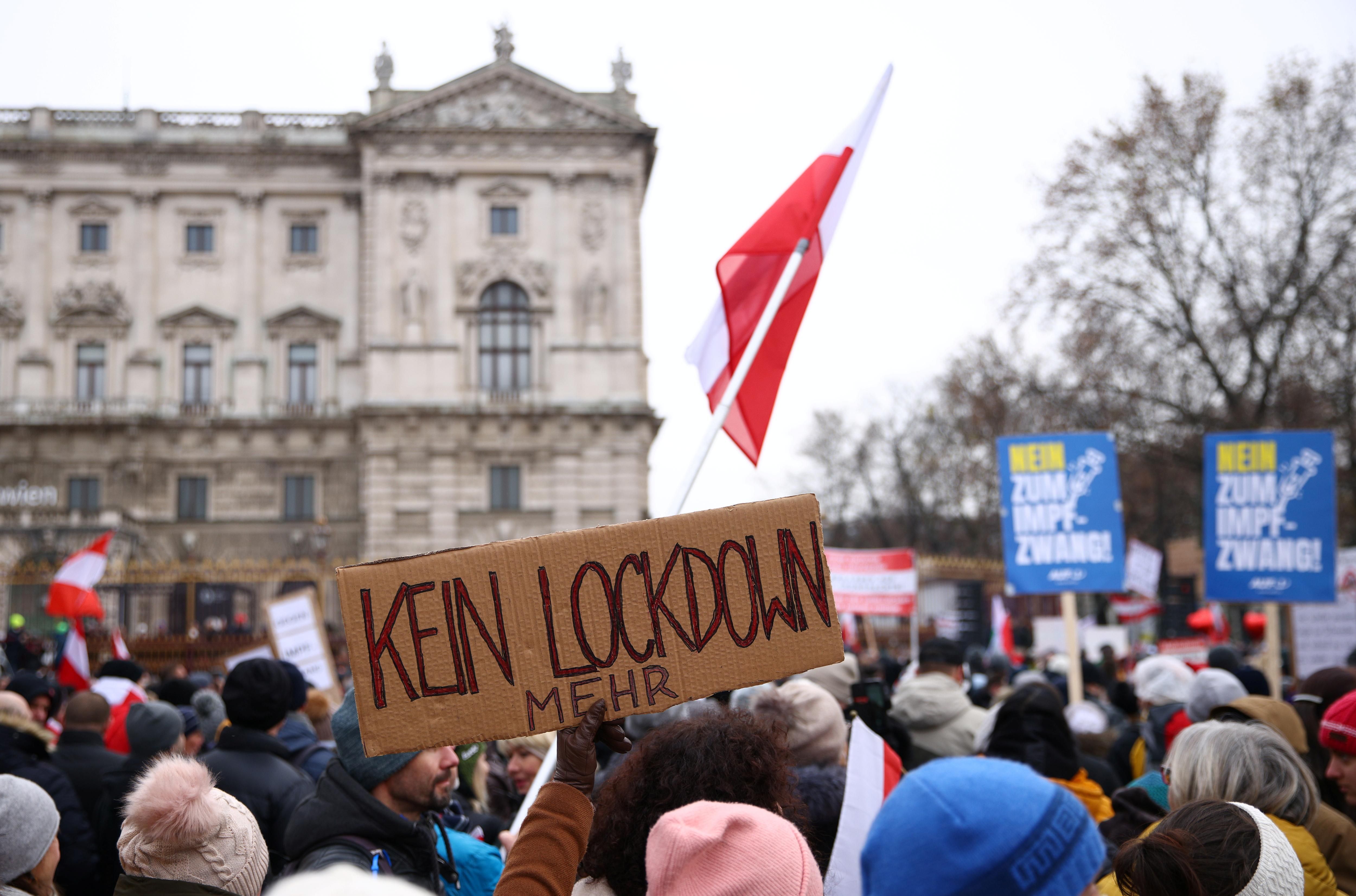News
December 05, 2021
40,000: At least 40,000 people joined protests in Vienna on Saturday against new lockdowns and vaccine requirements, the second week in a row the city has seen mass demonstrations of this kind. Amid a surge in new cases, the Austrian government announced that a nationwide vaccine mandate would come into effect on February 1.
107: Auckland, New Zealand's largest city, has come out of a citywide lockdown put in place 107 days ago to curb the spread of the delta variant. Still, for now, only vaccinated Aucklanders will be permitted to travel to other parts of the country.
13: Tensions are high in the state of Nagaland in northeast India after Indian troops mistakenly ambushed a group of miners on their way back from work, killing six of them. Clashes then broke out between civilians and soldiers, bringing the death toll to 13. Indian forces have long been at war with separatists in the region, though violence has declined since the two sides signed a peace deal in 2015.
416: An Italian man tried to get around his country’s vaccine requirements by showing up to a clinic with a prosthetic arm believed to cost 416 euros on Amazon. He almost got away with it until the health worker, sensing something amiss, asked him to take off his shirt.
More For You
Behind every scam lies a story — and within every story, a critical lesson. Anatomy of a Scam, takes you inside the world of modern fraud — from investment schemes to impersonation and romance scams. You'll meet the investigators tracking down bad actors and learn about the innovative work being done across the payments ecosystem to protect consumers and businesses alike. Watch the first episode of Mastercard's five-part documentary, 'Anatomy of a Scam,' here.
Most Popular
Think you know what's going on around the world? Here's your chance to prove it.
© 2025 GZERO Media. All Rights Reserved | A Eurasia Group media company.
